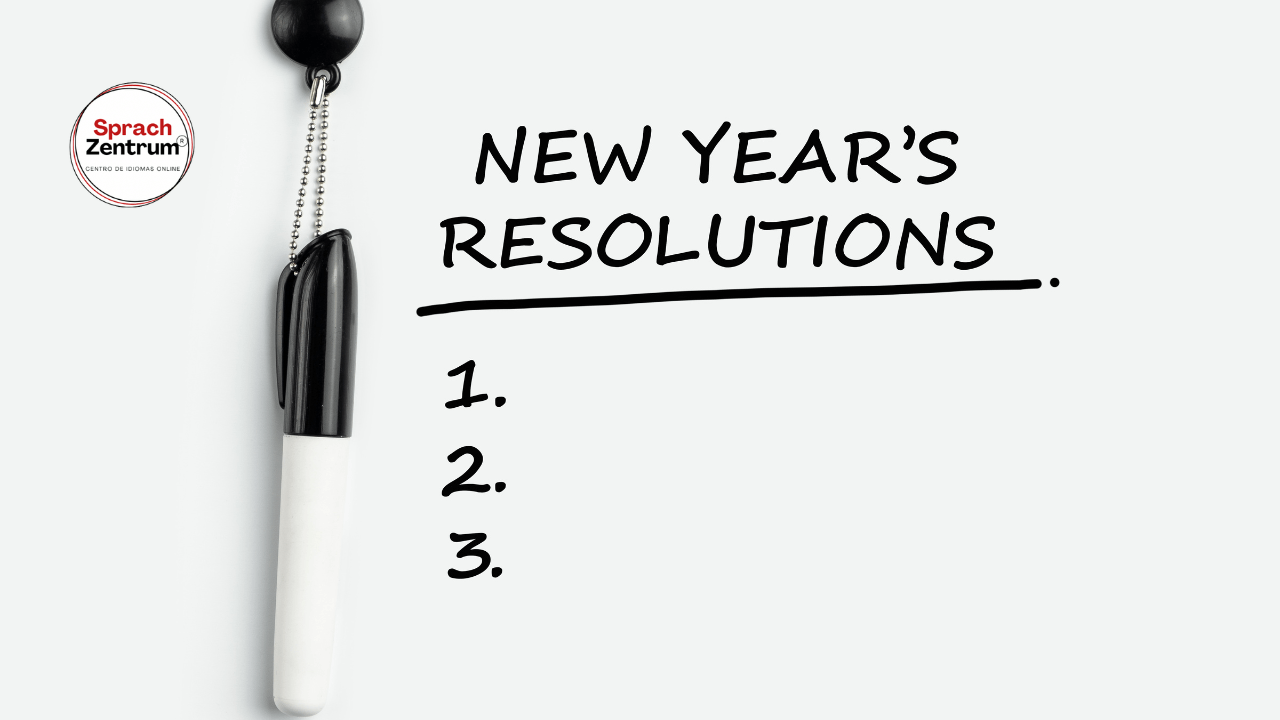The new year is a chance to give yourself a fresh start. While January 1 is technically just another day, switching to a blank calendar can make it feel like anything is possible. That feeling can last a few days, a few weeks, maybe even a month, but then it’s back to normal and your goals for the year may end up forgotten. It’s a cliché at this point that resolutions are hard to keep, so if 2023 is the year you really want to make a language-learning new year’s resolution and stick to it, you’ll need some help.
With that in mind, we’ve created a guide to creating and sticking with a resolution. You’ll still need to commit yourself to work, but it’ll set you on the right path and help you avoid the most common pitfalls.
With this in mind, you’ll be ready to tackle whichever language you want in 2023.
How To Set A Language-Learning New Year’s Resolution
One of the biggest problems people create for themselves is making a language-learning new year’s resolution that’s too vague. While “I will learn German next year” sounds great, it doesn’t really help you when you’re getting started. How well do you want to learn German? What do you hope to accomplish with the language? Learning a language is not the same as knitting a sweater; your relationship with the language can last the rest of your life. You should decide how you want that relationship to start.
There are a few different ways to do that, but one of the most efficient frameworks is SMART goals.
SMART is an acronym that stands for Specific, Measurable, Achievable, Relevant and Time-bound. While this was designed for work-related projects, it applies pretty well to anything you might want to work on.
Specific
As we’ve already established, setting your goal as “learn a language” isn’t quite specific enough to be useful. What do you want to do with the language? What do you want to accomplish? This might require a little more thought, but having something specific to focus on will help you as you’re striving toward your resolution.
Examples of Specific Goals
- I want to learn Spanish so I can read news articles in the language.
- I want to be able to have a conversation with a native speaker.
- I want to travel to Germany and be able to communicate in German.
Measurable
Language learning is a tricky goal to track. There aren’t clear benchmarks along the way, and your personal mastery of the language is more of a gut feeling than a number of vocabulary words you’ve learned. Even so, it will be very useful to find some way to measure your progress. An easy way to lose motivation is to feel like you’ve plateaued, and having concrete proof of your momentum will keep you going.
Ways To Measure Your Progress
- Reading or listening to something in the language every few weeks to test your comprehension.
- Keep track of the vocabulary you’re learning.
- Completing a certain number of lessons in a specific time period.
Achievable
This might sound like the most obvious aspect of setting a goal, but it’s surprisingly easy to forget. Depending on what’s going on in your life in the next year, it might not be possible to become entirely fluent in the language of your choice. You should really try to reflect on what will make the most sense for you because setting the goalposts too far away will just make you feel discouraged.
Relevant
If you’re moving to a new country, the relevance of your goal is obvious. But if you don’t have some clear external reason for learning, you still will want to figure out what makes this goal relevant to your life. Sure, learning a language is its own reward, but keeping your motivation up means you need to find a strong motivation in the first place.
Examples Of What Might Make Your Resolution Relevant
- You have a trip planned to a place that speaks the language.
- You’ve always wanted to read an author’s work in the original language.
- You love music that is sung in a specific another language.
- You live in or are moving to a largely bilingual area.
- You want to connect with your heritage, which is connected to a language that you don’t already speak.
Time-bound
A new year’s resolution is inherently time-bound, but you don’t necessarily have to choose “one year” as your timeframe. Setting your end date so far off might make it harder to keep your motivation. Instead, set a goal that’s only a few weeks or months off. That goal might be, “I want to be able to read a simple text in Italian by the end of March.” This doesn’t have to be your only goal — breaking your resolution into parts that you accomplish throughout the year is a great way to keep your progress moving — but having something simple and in the short term will make your language-learning resolution feel less abstract.
You’ve set your language-learning new year’s resolution, which is always a great first step. But remember that you actually have to do the work to meet it!
To do so revisit your motivation, mix up your learning, treat yourself, remind yourself of your accomplishments, and if it is necessary, reconsider how you’re tracking your progress.
Language learning isn’t something you can do for one year and then never think about again unless you have a very specific purpose for learning. If you’ve satisfactorily hit your language-learning new year’s resolution goals, the next steps are just expanding on what you’ve already done. Set new (SMART) goals in new time frames, keep pushing yourself, and do your best to avoid getting discouraged when you run into problems. There’s no straight path to language mastery, so give yourself the space to fail and try again.
Here’s to a language-filled 2023!


